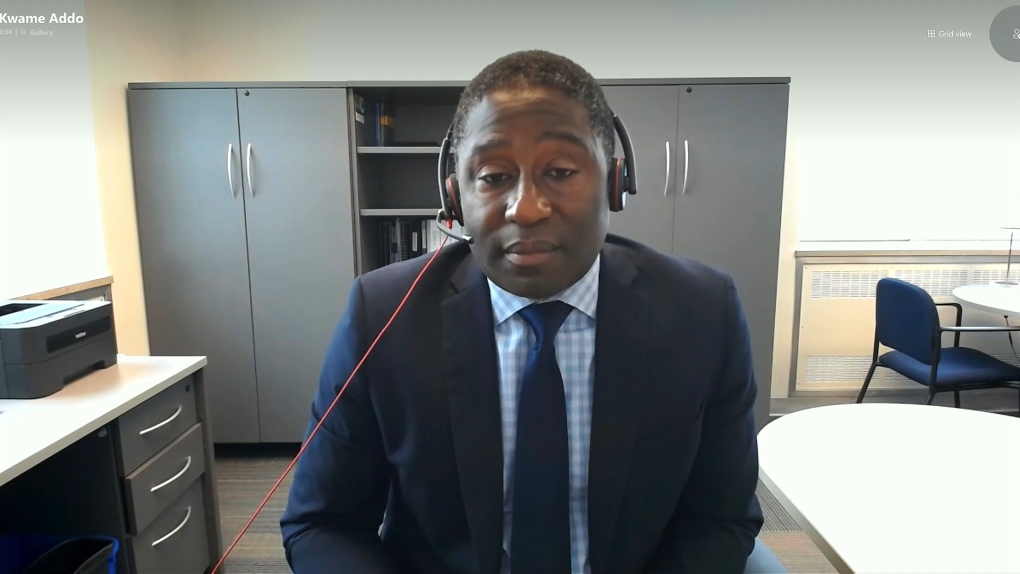Toronto police to hand off vulnerable persons registry to 3rd party after failed rollout: ombudsman
Toronto police are looking to hand off operations of a voluntary registry meant to improve interactions with vulnerable members of the community to a third-party following a rollout plagued with communication failures and a lack of public engagement, according to a report by the city’s ombudsman.
The Vulnerable Persons Registry (VPR), launched in 2019, offers those with mental health challenges or who have limited cognitive abilities the opportunity to voluntarily provide police with information such as specific behaviors or recommended de-escalation strategies.
Five years after its launch, however, Toronto’s Ombudsman has found that a lack of leadership and a failure to engage the public has led to a significantly low registration rate – just over 300 residents have signed up for the program.
“I believe there is one common underlying issue for the low registration numbers: a failure for someone or a unit within the service to take responsibility for the registry,” Ombudsman Kwama Addo wrote in the report. “This lack of accountability has created gaps in the Toronto Police’s communication and promotion about the registry.”
 City of Toronto Ombudsman Kwame Addo can be seen in an undated photo.
City of Toronto Ombudsman Kwame Addo can be seen in an undated photo.
The 69-page report found that the service failed to sufficiently consult the public before launching the program at a time of “heightened distrust and skepticism toward police data collection.”
“Although the Toronto Police received input from two dozen agencies, they did not gather feedback from the public generally,” Addo found.
In total, the report made 13 recommendations on improving clarity, communication, and officer training in regards to the program, all of which were accepted by the service.
Addo’s report, published on Thursday, comes amid an effort by Toronto police to transfer ownership and operations of the registry to a third party.
When reached for comment, Toronto police’s Chief Information Officer, Colin Stairs, told CTV News Toronto the service is looking to partner with non-profit organization MedicAlert. According to Stairs, the transfer is being sought in response to civilian privacy concerns.
“What’s driving us to use a third-party is actually privacy concerns and questions from community members about police needing to hold some of this data,” Stairs said. “So, what we are moving towards is having a third-party who generally has higher trust to manage that data on our behalf, and we would access it only in emergencies.”
MedicAlert, a Canadian non-profit offering personalized medical ID bracelets, already manages one of Canada’s largest personal health record management systems. In the case of a medical crisis, police, paramedics and first responders can access a client’s medical information information using the 24/7 database.
A partnership between TPS and MedicAlert wouldn’t be the first of its kind. In Ottawa, the non-profit has taken over operations of the police’s vulnerable persons registry, the ‘Connect Protect‘ program.
“We are eager to join [Ottawa] as soon as they certify the pilot and they make [that partnership] valid,” Stairs said. “They haven’t opened the door for us yet, but we’re standing in front of them.”
While the service works with MedicAlert to assess “the nature and scope of the arrangement,” the service has stopped allocating resources to the registry, Addo found in his report.
Whether in its current form or managed by a third-party, Toronto police still have a duty to the public to “communicate clearly, meaningfully, and accurately” about the registry and the information stored in it, the Ombudsman wrote.
“The recent decision to transfer ownership and management of the registry does not absolve the Toronto Police of its obligation to ensure that its practice, process, and communications are updated, accurate and clear,” Addo continued.
Of the 13 recommendations made to the service, Addo asked that nine be incorporated into any third-party arrangement reached to avoid further gaps in operations and management.
The Ombudsman also asked the Toronto Police Service to provide an update on its progress implementing the recommendations by Dec. 12.
View original article here Source









